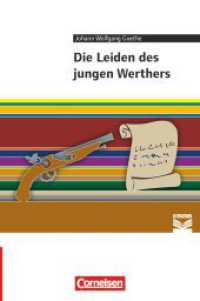Full Description
Designing a Successful Tutoring Session for Struggling Readers addresses how to design and deliver a successful one-on-one tutoring session tailored to the needs of struggling readers. Essential topics with implications for preparation of literacy tutoring sessions are addressed—response to intervention (RTI), components and organization of a tutoring session, word recognition and fluency strategies, comprehension strategies, writing strategies, content area with STEAM, use of technology, English Language Learners, and parent involvement. Current trends discussed include close reading, close writing, multimodal literacies, digital literacies, text complexity, and Common Core State Standards (CCSS) guidelines.
Contents
Chapter 1: Discussion of Learning Theories and Response to Intervention (RTI)
History of National Education Laws
Book Focus and Organization
Role of Literacy Coaches
Reading Process and Major ?eories of Reading Development
Views of Reading Instruction
The Concept of Response to Literacy (RTI)
Summary
References
Chapter 2: Components of the Strategic Literacy Tutoring Session
Schedule, Location, and Literate Environment
Motivation
Who Are the Instructors for the Tutoring Sessions?
Components of a Strategic Literacy Tutoring Session
Planning Instruction
Student Literature Essentials in the Tutoring Session
Fiction and Nonfiction (Content-Area Texts and Information Texts)
Poetry
Anthologies of Poems for Students
Biographies
Series Books
Multicultural Books
Graphic Novels
Books for Drama
Social-Emotional Learning Books
Functional Reading Lessons
Summary
References
Chapter 3: Word Recognition and Fluency Strategies
Focuses on Word Recognition
Focus on Fluency
Fluency Strategies
Summary
References
Chapter 4: Comprehension Strategies
Current Trends in Reading Comprehension
Best Practices for Comprehension Instruction
Research-based Comprehension Strategies
QAR
Summary
References
Chapter 5: Written Composition
Concept of the Writing Process
Comparing Types of Writing
The Reading/Writing Connection
The Writing Workshop
Writing Strategies
Summary
References
Chapter 6: Enriching Reading and Writing in the Content Areas
Teachers Becoming Content-Area Literacy Providers
Learning in Science, Social Studies, Math, and Art
Summary
References
Chapter 7: Use of Technology
Tools for New Literacies
Summary
References
Chapter 8: Meeting the Needs of English Learners and Other Learners with Special Needs in Reading
Federal Policies
Teaching Reading to ELs
Teaching Writing to ELs
Teaching Content Area to ELs
Assistive Technology for ELs
Summary
References
Chapter 9: Importance of Parent Involvement
Role of Reading Specialists and Tutors
Ideas for Increasing Parent Involvement
Parent Reading and Writing Support
Media Literacy Links between Home and School
Summary
References
Index








